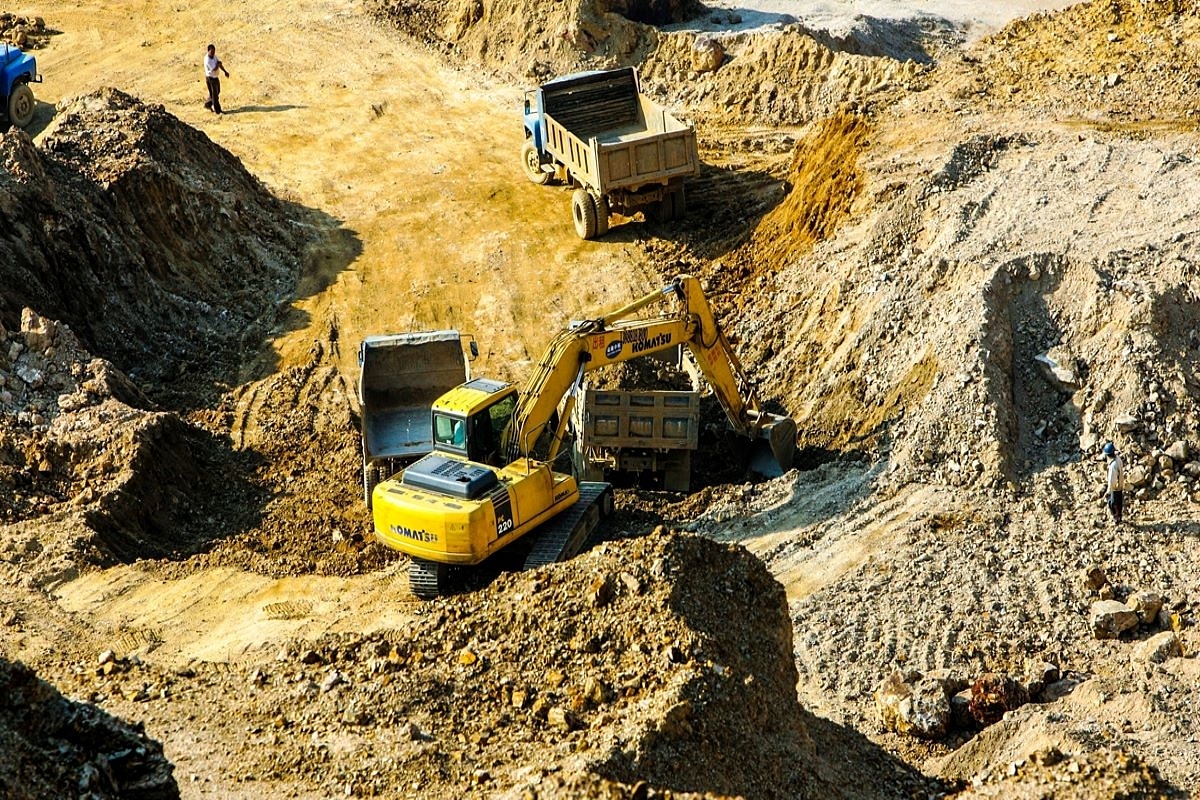News Brief
China Merges 3 State-owned Rare Earths Firms To Form A New Mining Behemoth As It Fights To Sustain Supremacy In 17 Strategic Minerals
- China's state asset administration has approved the merger of three leading rare earths companies, to create a new state-owned behemoth aimed at sustaining the country's dominance of a key strategic sector.

Rare Earth Element Mining In China
China's state asset administration has approved the merger of three leading rare earths companies, to create a new state-owned behemoth aimed at sustaining the country's dominance of a key strategic sector.
China Rare Earth Group was formed after the merger of units from the Aluminium Corporation of China, China Minmetals, Ganzhou Rare Earth Group and two rare earth technology developers. The new entity will be controlled by the SASAC, the country's state assets watchdog.
According to analysts, the merged company would be the world’s second-largest rare earth elements producer in terms of output after China Northern Rare Earth Group, and and will control around 70 percent of China's heavy rare-earth minerals, which is an critical material in manufacturing items from high-tech consumer electronics to military equipment.
"After forming the new company, China's rare-earth industry will shift from a scattered, small-scale status toward a systematic, comprehensive model," Global Times quoted Chen Zhanheng, deputy head of the China Rare Earth Industry Association as saying.
Rare earth prices reached a 10-year high in November 2021, driven by the demand from emerging industries, tight supplies and industry consolidation.
China once used to control nearly 90% of the world’s rare earth elements mining and refinement as well as supply chains dependent on them. However its share of global output has fallen from 86 per cent in 2014 to 58.3 per cent last year, according to the US Geological Survey.
Beijing as so far resisted calls to weaponise its control of rare earth minerals supply chain as retaliatory measure against US trade war that imposed heavy tariffs on most Chinese products in 2018.
What Are Rare Earth Elements
Rare earth elements is composed of 17 minerals critical to the defense industry’s manufacturing of missiles and munitions, hypersonic weapons, wind turbines, electric carsand radiation-hardened electronics — as well as consumer electronics like cellphones.
Rare earth elements include ytterbium (used in TVs, computer screens and cancer drugs), praseodymium (used in magnets and to strengthen metal for aircraft engines), lanthanum (used primarily in battery alloys and catalysts;) and cerium (used in catalysts, glass, ceramics, polishing. Praseodymium, neodymium, samarium, and dysprosium are also used to make high-quality permanent magnets.
US Vs China
US administration, earlier under Donald Trump and now Joe Biden, has been initiating series of steps to break the stranglehold of China on rare earth elements critical to electronics and national defence sector. U.S has unveiled plans to secure rare-earth supply chain as part of their prioritized climate and technological policies.
In September 2020, President Donald Trump signed an executive order declaring a national emergency in the mining industry.
The order aimed to boost domestic production of rare earth minerals critical for military and electronics related technologies while reducing the country’s dependence on China.
In 2020, U.S used to imports 80 percent of these elements directly from China, with portions of the remainder indirectly sourced from China through other countries.
US Defense Department recently signed a technological investment agreement with an Australian company, under which the latter will build a light rare-earth processing facility in Texas.
In September 2020, US government announced that it has invested $25 million in TechMet, a mining group based in London, UK, which specialises in rare earth production, The Telegraph reported. The investment is made with the aim of creating rare earth supply outside of China, which currently controls the global flow of materials such as cobalt and lithium.
The investment in TechMet is expected to fund the development of a mine in Brazil set to produce nickel and cobalt, essential materials for the production of electric vehicles, batteries and cellphones.
TechMet has a tin and tungsten mine in Rwanda, a rare earth mine in Burundi, and a lithium-ion battery project in Canada. The company also produces vanadium, a key metal used in the manufacture of nuclear reactors and military aircraft. It has stated that its prospective mine in Brazil contains up to 72 million tons of nickel and cobalt.
Support Swarajya's 50 Ground Reports Project & Sponsor A Story
Every general election Swarajya does a 50 ground reports project.
Aimed only at serious readers and those who appreciate the nuances of political undercurrents, the project provides a sense of India's electoral landscape. As you know, these reports are produced after considerable investment of travel, time and effort on the ground.
This time too we've kicked off the project in style and have covered over 30 constituencies already. If you're someone who appreciates such work and have enjoyed our coverage please consider sponsoring a ground report for just Rs 2999 to Rs 19,999 - it goes a long way in helping us produce more quality reportage.
You can also back this project by becoming a subscriber for as little as Rs 999 - so do click on this links and choose a plan that suits you and back us.
Click below to contribute.
Latest